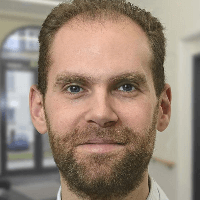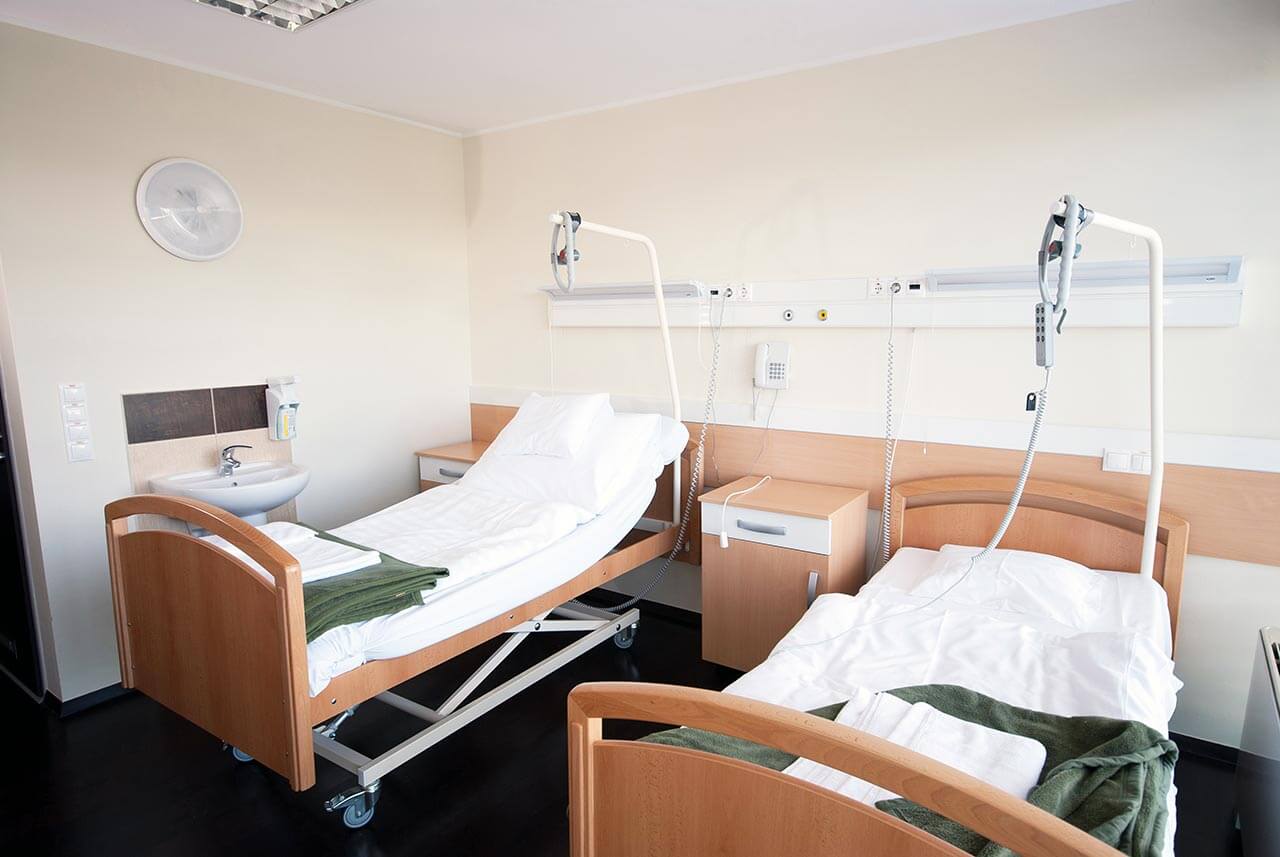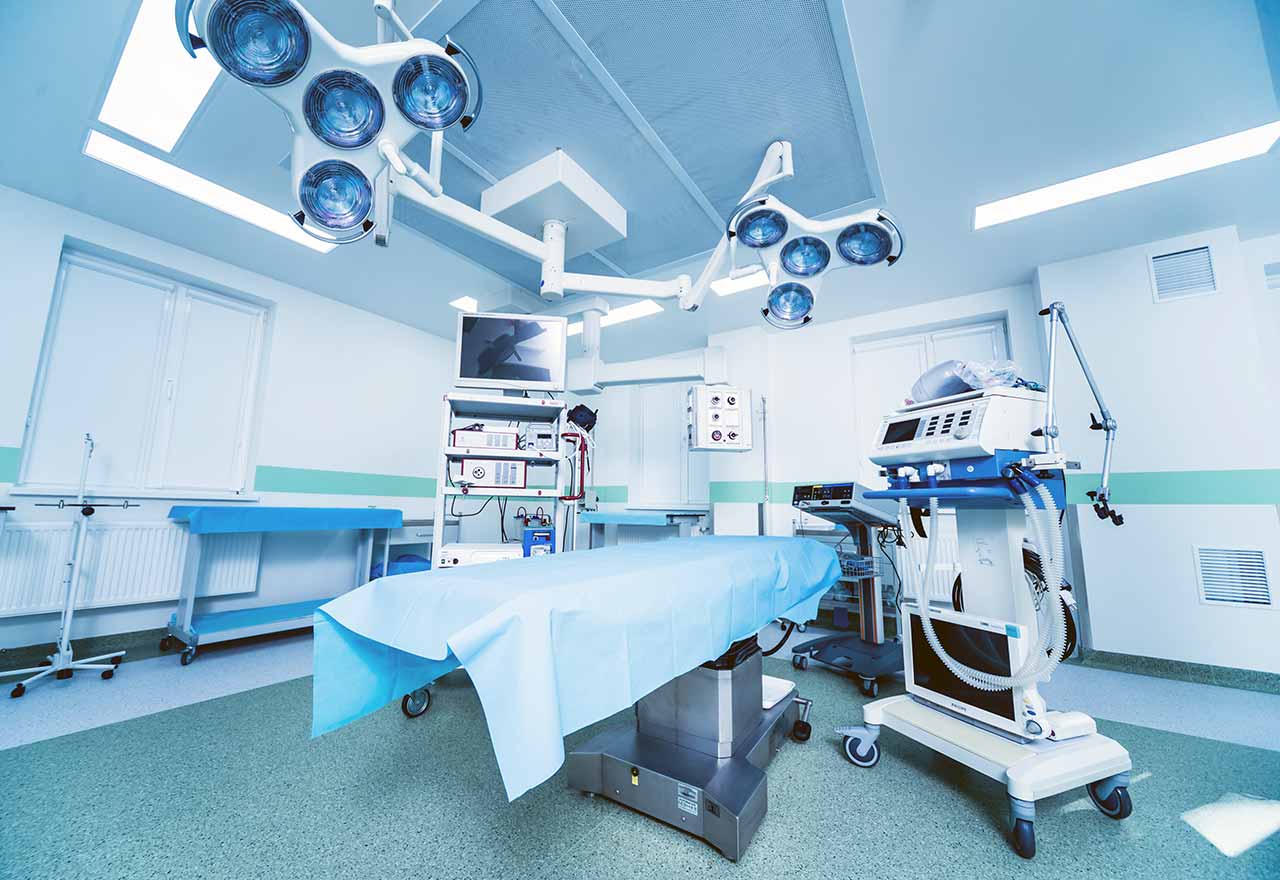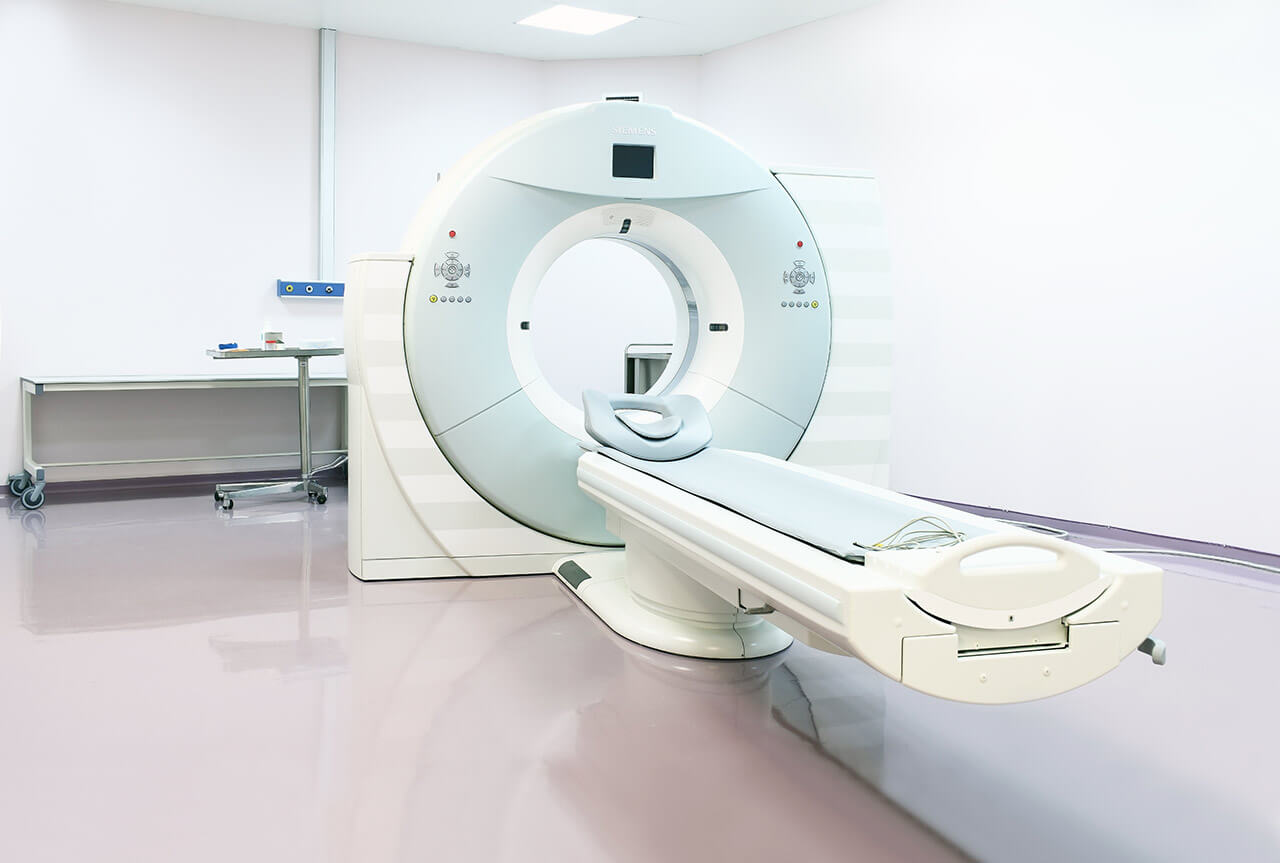
The program includes:
- Initial presentation in the clinic
- clinical history taking
- review of medical records
- physical examination
- laboratory tests:
- complete blood count
- biochemical analysis of blood
- inflammation indicators (CRP, ESR)
- indicators blood coagulation
- x-ray and bronchography
- electrocardiogram (ECG)
- high-resolution computed tomography (HR-CT)
- preoperative care
- segmental resection or lobectomy
- histologically examination of the remote tissues
- histological and microbiological examination
- bronchial lavage
- symptomatic treatment
- control examinations
- the cost of essential medicines and materials
- nursing services
- full hospital accommodation
- explanation of future recommendations
Required documents
- Medical records
- X-ray/chest CT scan (if available)
Service
You may also book:
 BookingHealth Price from:
BookingHealth Price from:
About the department
The Department of Thoracic Surgery at the HELIOS University Hospital Wuppertal offers the full range of modern surgical treatment of diseases of the lungs and other respiratory organs at the highest level of European medicine. A special field of competence of the department's thoracic surgeons is the resection of tumors and metastases in the lungs, trachea and thoracic wall. The department has the status of a certified Lung Cancer Center (certificate of the German Cancer Society, DKG), which confirms the exceptional quality and effectiveness of therapy. The specialists also perform modern interventions for inflammatory diseases and traumatic injuries of the respiratory organs, as well as thoracic malformations. The department's operating rooms have modern equipment that allows performing most surgical interventions using sparing surgical techniques – video-assisted thoracoscopic surgery. The department's doctors resort to open surgery only in rare cases.The surgeons make sure that the patient feels as comfortable as possible during the therapeutic process and are always ready to help with any issues.
The department is headed by Dr. med. Christian Biancosino. He is a leading specialist in the field of thoracic surgery and is actively engaged in research activities. In 2003, he managed to create a tracheal flap – a tracheal section that corresponded to all the characteristics of normal human tissue, as well as was restored after irradiation and was suitable for correcting tracheal defects in cancer patients. Dr. Biancosino's team offers the full range of surgical interventions – from surgical treatment of hyperhidrosis to complex lung cancer surgery.
The department has advanced equipment and performs surgical treatment using the very latest techniques. For this purpose, the medical facility has the entire infrastructure of the maximum care university hospital. For example, with the help of cutting-edge laser systems, doctors remove lung metastases in the most sparing way, and extracorporeal membrane oxygenation (ECMO) allows specialists to operate on patients with severe forms of lung diseases. With endoscopic techniques, even extremely complex lung interventions are performed using minimally invasive and sparing procedures.
The team of thoracic surgeons successfully copes with the treatment of malignant diseases of the respiratory system. Lung cancer is a severe oncopathology that is difficult to treat, and therefore specialists of the medical facility cooperate with pulmonologists and pay due attention to the treatment of this disease. The patients with suspected lung cancer are admitted to a specialized Lung Cancer Center certified in accordance with the requirements of the German Cancer Society (DKG). This means that patients can receive interdisciplinary medical care with the use of the very latest therapeutic methods and individually elaborated treatment regimens. The responsibility of the department's thoracic surgeons includes the resection of malignant lung tumors (at the advanced stages, it may be required to remove a part of the affected organ). This part of the therapeutic process plays a crucial role in the success of lung cancer treatment. The department's thoracic surgeons always strive to use modern video-assisted thoracoscopic surgical techniques, thanks to which the patient does not need thoracotomy. Thus, postoperative recovery takes place as soon as possible, and the patient does not experience severe pain. In cooperation with pulmonologists, oncologists and radiation therapists, the specialists cooperatively assess the diagnostic results in order to prescribe chemotherapy, radiation therapy or chemoradiation therapy to the patient. The competence of thoracic surgeons of the medical facility also includes the surgical removal of lung metastases caused by colon cancer, breast cancer, prostate cancer and other oncological diseases. With appropriate clinical indications, metastasis removal is performed with the use of modern laser technologies.
The department also performs surgical treatment of benign diseases. The most common of these are pleural effusion, pleural empyema, pneumothorax, pulmonary emphysema, bronchiectasis, pulmonary tuberculosis, congenital and acquired malformations of the thorax and thoracic wall, as well as traumatic chest injuries, including rib and sternum fractures, pulmonary hemorrhage. Benign diseases are treated with the use of endoscopic and thoracoscopic techniques, during which the doctor makes only a few small incisions to access the pathological focus instead of thoracotomy. The use of low-traumatic surgical techniques provides patients with an effective result and high safety of treatment.
The department's range of services includes the diagnostics and treatment of the following diseases:
- Lung cancer and cancer of other respiratory organs
- Malignant tumors of the lungs (for example, lung cancer), mediastinum, chest wall (for example, sarcoma), and pleura (for example, pleural mesothelioma, malignant pleural effusion)
- Malignant tracheal diseases: tumors, strictures, stenoses
- Lung metastases caused by other cancers (for example, colon cancer, kidney cancer, breast cancer, testicular cancer, prostate cancer, etc.)
- Inflammatory diseases
- Pleural effusion
- Pleural empyema
- Bronchiectasis
- Fungal lung lesions
- Pulmonary tuberculosis
- Benign diseases, malformations, traumatic injuries of respiratory organs and chest wall
- Benign neoplasms of the lungs, mediastinum, thorax and pleura
- Pneumothorax and pulmonary emphysema
- Excessive sweating of the arms and armpits (hyperhidrosis)
- Congenital malformations of thoracic organs (including cysts of the bronchi, pericardium, etc.)
- Congenital and acquired thoracic malformations
- Thoracic injuries (fractures of the ribs and sternum, pulmonary hemorrhage)
- Other diseases
The department's surgical options include:
- Lung-preserving cuff resection to avoid pneumonectomy
- Lung-preserving radical pleurectomy for malignant pleural mesothelioma (pleural cancer)
- Surgical removal of metastases in the lungs, including laser one
- Modern sparing thoracoscopic techniques (VATS lobectomy, segmental resection using VATS technique, etc.)
- Extended resections (including chest wall, spine, etc.)
- Surgical procedures with the use of methods of extracorporeal membrane oxygenation (ECMO)
- Other types of thoracic interventions
Curriculum vitae
Dr. med. Christian Biancosino is the Head of the Department of Thoracic Surgery at the HELIOS University Hospital Wuppertal. Previously, the doctor held the position of the Managing Senior Physician in the same Department of Thoracic Surgery (for two years). Dr. Biancosino also worked at the University Hospital Freiburg, and most of the specialized clinical training in thoracic surgery took place at the Dr. Horst Schmidt Clinic Wiesbaden. In addition, Dr. Biancosino worked for three years as the Deputy Head Physician of the Department of Cardiothoracic Surgery, Transplant Surgery and Vascular Surgery at the Hanover Medical School.
The clinical focuses of Dr. Biancosino include thoracic interventions ranging from hyperhidrosis (excessive sweating) surgery to complex lung cancer surgery. The specialist cooperates closely with colleagues from various medical fields and has been engaged in scientific activities for many years.3214qwas
Photo of the doctor: (c) Helios Universitätsklinikum Wuppertal
About hospital
According to the prestigious Focus magazine, the HELIOS University Hospital Wuppertal ranks among the top medical facilities in Germany!
The hospital rightfully enjoys the status of the maximum care medical facility and provides its high-quality services in all modern fields of medicine. The hospital operates on the basis of the Witten/Herdecke University, which was opened in 1982 and today is considered one of the best in Germany. Thus, many head physicians of the medical complex are in charge of the corresponding department at the university, which contributes to the close intertwining of research activities and clinical practice. The hospital has long traditions and its own values – the main goal of doctors is to provide comprehensive medical care focused not only on curing the disease, but also on the patient's personal needs.
The hospital has 1,000 beds. The doctors of the medical facility admit more than 50,000 inpatients annually. In addition, more than 100,000 outpatients undergo diagnostic and therapeutic procedures. Such high attendance rates speak for themselves and are undeniable proof of the high-quality medical service of the European level. The medical staff of the hospital has more than 2,500 employees, whose main task is to restore the patient's health and provide him with a decent quality of life.
The hospital has more than 26 specialized departments, as well as many narrowly focused centers and institutes dealing with the treatment of patients suffering from a particular group of diseases: Breast Center, Cancer Center, Cardiology Center, Trauma Center, Spine Center and others. The primary clinical focus of the medical center is cancer treatment.
For more than 25 years, the hospital has been running a special quality management system for medical care, which regulates the aspects of work of the medical staff, compliance with hygiene and safety standards during diagnostics and treatment. Consequently, patients can be sure that their health is in the safe hands of true professionals who work in accordance with the latest medical standards.
Special attention should be paid to the honors of the hospital for excellent patient care. The medical complex has quality certificates from the German Cancer Society (DKG), the German Trauma Society (DGU), the German Cardiac Society (DGK), the German Stroke Society (DSG) and other professional German societies.
Photo: (с) depositphotos
Accommodation in hospital
Patients rooms
The patients of the HELIOS University Hospital Wuppertal live in comfortable single, double, triple and quadruple rooms. Each patient room has an ensuite bathroom with shower and toilet. The standard room furnishings include a comfortable automatically adjustable bed, a bedside table, a wardrobe, a TV and a telephone. The hospital has Wi-Fi (free). For maximum patient comfort, there is a nurse call device on the bedside table. This device allows the patient to control the TV, radio, turn on or off the lights, and adjust the position of the bed.
The patients of the hospital are also offered accommodation in enhanced-comfort rooms. These rooms additionally provide a safe and a free minibar with soft drinks. The enhanced-comfort rooms also have a spacious bathroom with hairdryer, bathrobe, towels and toiletries.
Meals and Menus
The patients of the hospital are offered three meals a day: breakfast, lunch and dinner. The menu offers a variety of delicious dishes to suit all tastes, including dietary and vegetarian options.
The hospital also has a bistro where one can taste delicious hot dishes, cold snacks, desserts, as well as a cup of tea, coffee or refreshments.
The patients staying in enhanced-comfort rooms are offered a separate menu that includes a wider and more refined range of dishes. In addition, fresh fruit, tea, coffee and desserts are delivered to the patient room every day, if desired.
Further details
Standard rooms include:
Religion
The religious services are available upon request.
Accompanying person
During an inpatient program, your accompanying person can stay with you in the patient room or in the hotel of your choice.
Hotel
During an outpatient program, you can stay in the hotel of your choice. Our managers will help you choose the most suitable options.




